You are here
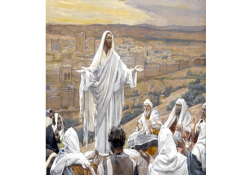 February 16 2023
Did Jesus reject the Jewish law?
February 16 2023
Did Jesus reject the Jewish law?
Fulfilling the Law
Not according to Matthew's gospel. In Matthew 5:17, Jesus forbids us from thinking that he came to "abolish the law or the prophets."[2] The phrase "law and prophets" was Jewish shorthand for what Jews call Tanach, the whole Old Testament. "Law" was a reference to Torah, the first five books of the Old Testament, and "the prophets" was a placeholder for all the rest of the Hebrew Bible.
Read more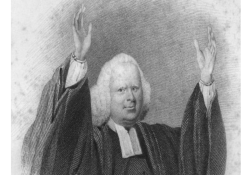 February 11 2023
THE VERY DEFINITION OF GOOD PREACHING
February 11 2023
THE VERY DEFINITION OF GOOD PREACHING
First, does your message expose (exposit) the Scripture? Does it get the congregation to the heart of the passage read, or is it used like a springboard to make personal pronouncements hoping it will lead to better behavior? Let the Scriptures speak for heaven's sake; it is God's word and so much more interesting than anything you have to say!
Read more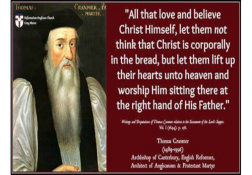 February 05 2023
HOLY COMMUNION -- 1662 Book of Common Prayer
February 05 2023
HOLY COMMUNION -- 1662 Book of Common Prayer
It communicates that he who has magical hands and words, and not God, is the consecrator of the bread and wine in Holy Communion. I love this liturgical message that dates back to the 1552 Book of Common Prayer, but I've sometimes thought that those who insist on calling an altar a "table," and who preside at Holy Communion on the north side of the table are fussy, legalistic liturgical Protestants.
Read more February 04 2023
FAREWELL TO ANGLICANISM
February 04 2023
FAREWELL TO ANGLICANISM
The time has now come to admit and declare the great and sad farewell to authentic Anglicanism -- already achieved by those rogue elements within the church utterly opposed to the constitutional and confessional character of the good ship Ecclesia Anglicana. Mutineers and pirates have jumped aboard and reprehensible bishops and erring theologians have taken hold of the helm. There is an outright revolt against heavenly truth and holy living.
Read more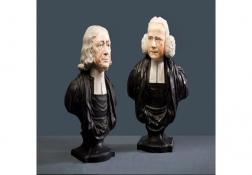 February 03 2023
"You Cannot be a theological Arminian and be Anglican"
February 03 2023
"You Cannot be a theological Arminian and be Anglican"
It's nice sentiment, but not helpful, what Charles Simeon said: "No dissenter dares to preach as I do, one day Calvinist and another day Arminian, just as the text happens to be." This denies the theological differences between the two and the fact that Arminianism was invented specifically to oppose Calvinism.
Read more February 02 2023
THE EPISCOPAL EVANGELICAL TRADITION
February 02 2023
THE EPISCOPAL EVANGELICAL TRADITION
Bishop Provost of New York resigned in 1801. Bishop White made only one general diocesan visitation in his long tenure as Bishop of Pennsylvania. Bishop James Madison seemed to have resigned himself to the demise of the church in Virginia after only one diocesan visitation and called no more conventions after 1805 and attended no more meetings of the bishops.
Read more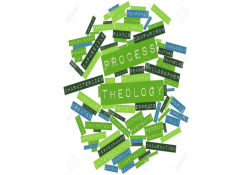 January 21 2023
WHY ANGLICANS SHOULD REJECT PROCESS THEOLOGY
January 21 2023
WHY ANGLICANS SHOULD REJECT PROCESS THEOLOGY
Hartshorne, like Whitehead, was the son of an Anglican minister. Historically, Anglicans have posited unorthodox views of God. Bishop George Berkeley introduced the concept of panentheism which means that all is in the one God. Hartshorne preferred the term dipolar over panentheism.
Read more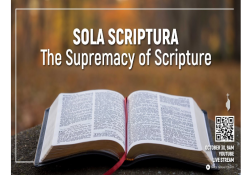 January 19 2023
THE VOICE OF ANGLICANISM: The Supremacy of the Word
January 19 2023
THE VOICE OF ANGLICANISM: The Supremacy of the Word
The Church listens intently, and conveys carefully, the message of God to his world. Its aim and aspiration is to speak to mankind with spot-on accuracy, translucent clarity and infectious conviction. We fallible witnesses to the Word will not fully comply with the divine ideal, but the Spirit of God must be implored to resource the People of God with sufficiency of comprehension and skillful communication to commend Christ as Lord and Redeemer to the estranged mass of sinful humanity.
Read more January 16 2023
"You can run on for a long time ..."
January 16 2023
"You can run on for a long time ..."
As one survivor of Stutthof, Manfred Goldberg, regretted, "It's a foregone conclusion that a 97-year-old would not be made to serve a sentence in prison--so it could only be a symbolic sentence." At the same time, "the length should be made to reflect the extraordinary barbarity of being found to be complicit in the murder of more than 10,000 people."
Read more January 02 2023
THE "MENACE" FROM VENICE: PAOLI SARPI (1552 -- 1623)
January 02 2023
THE "MENACE" FROM VENICE: PAOLI SARPI (1552 -- 1623)
He withstood papal discipline, resisting an interdict imposed upon his native city over a number of years (1605-7), and proposed that Venice ought to have a "free church" with a homegrown liturgy and a toleration for Protestantism. It is this religious tendency that is the concern of this brief article. Sarpi remained Catholic as was his preference, but he harbored a high regard for Reformed Anglicanism.
Read more


